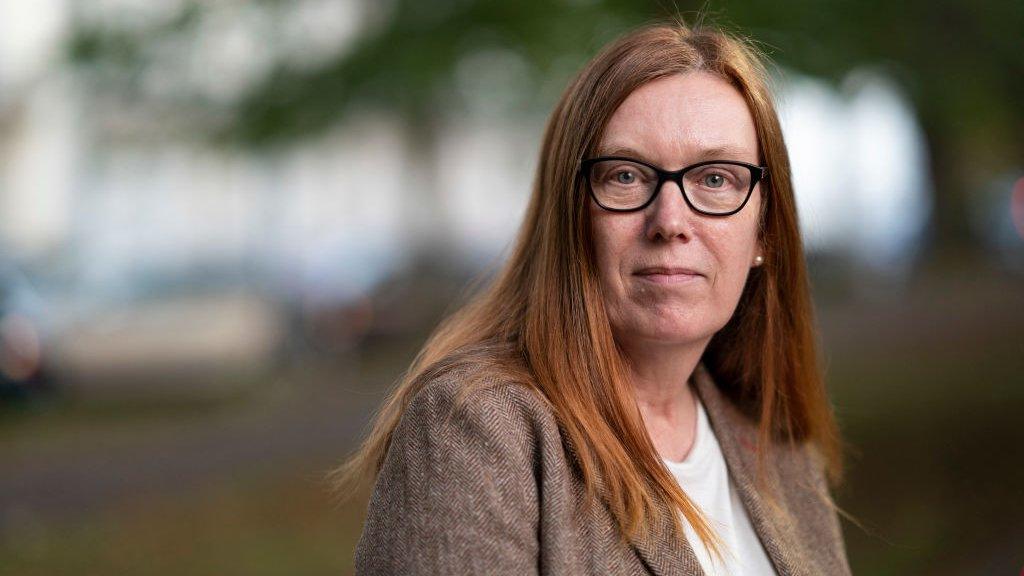Malaria: Aberystwyth University drone system used in Zanzibar
- Published
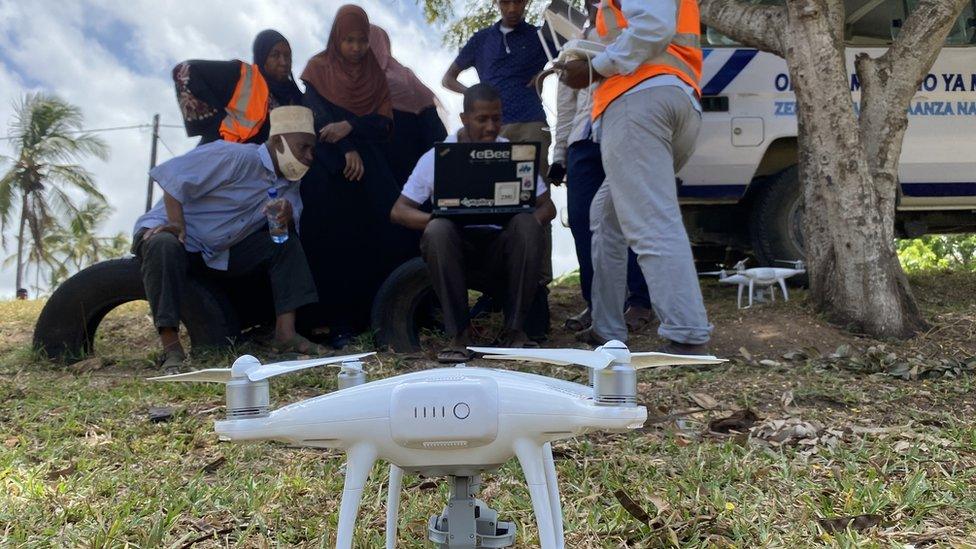
These drones are being used to find pools of water that mosquitos use to breed
Drone and smartphone technology developed at Aberystwyth University is being used to fight malaria in Tanzania's semi-autonomous islands of Zanzibar.
Scientists from the university have been finding water pools that malaria-carrying mosquitos use to breed.
It is the first time drone technology has been used within a widespread intervention programme.
The disease kills more than 400,000 people worldwide each year.
The Zanzibar Malaria Elimination Programme is aiming to rid the archipelago of the disease by 2023.
The malaria parasite is mainly spread by female Anopheles mosquitoes, which tend to bite at dusk and at night.
When an infected mosquito bites a person, it passes the parasites into the bloodstream.
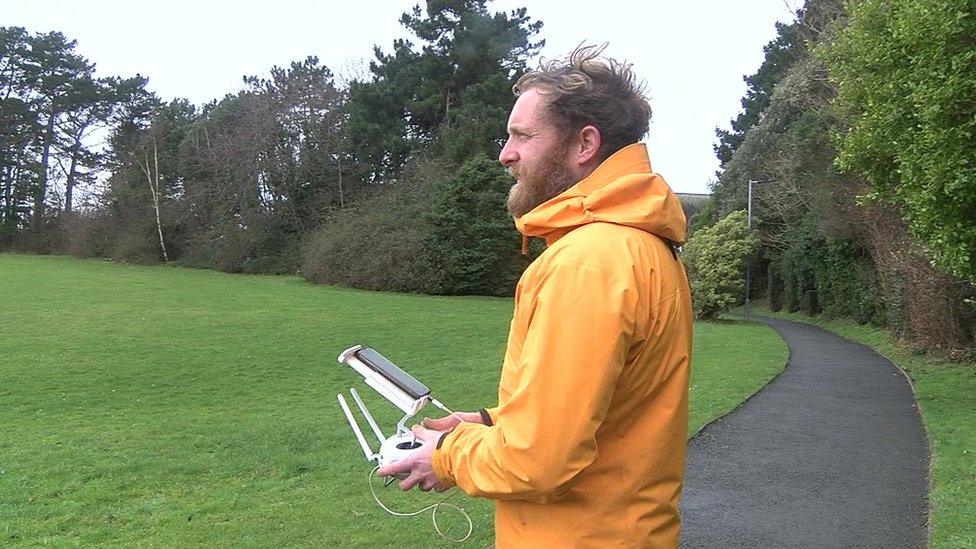
Dr Andy Hardy says this kind of technology could "be a gamechanger"
Controlling the mosquito larvae is considered a crucial part of malaria eradication, but from the ground it is hard to predict when and where the breeding sites will develop - which makes it hard to find and treat them before the adults emerge.
Dr Andy Hardy, a lecturer at Aberystwyth University's Department for Geography and Earth Sciences, decided to look at the problem from a different angle, turning to drone technology.
"These things conceptually on the ground are quite difficult, but as soon as you get that perspective, for instance over a large rice paddy, you can see it come alive," he said.
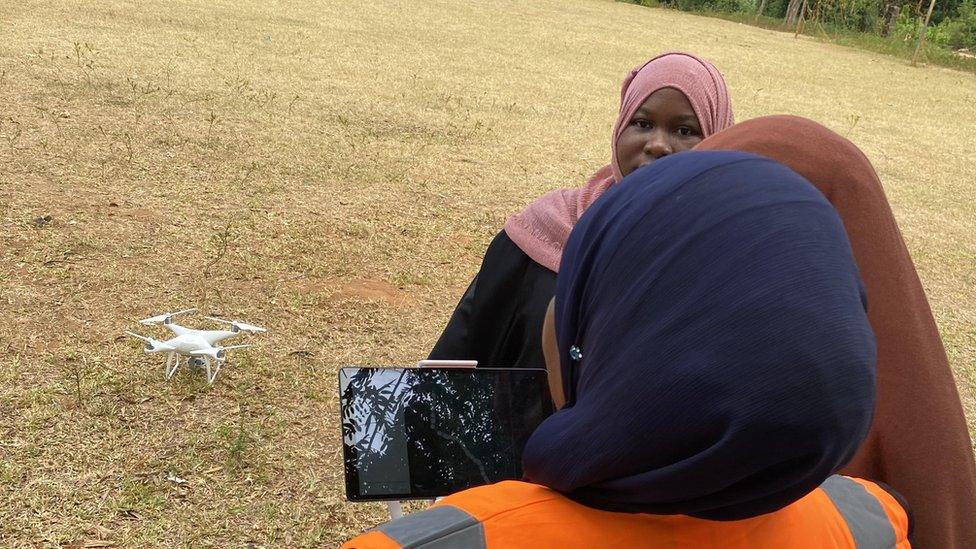
Smartphones are used to control the drones, which gather images of malaria pools
"You can see certain areas of the rice paddy that are inundated with water, certain areas that are dry.
"So where do you locate your resources? Obviously to places that are wet."
He said this kind of technology could ultimately be a "gamechanger".
The drones provide precise and accurate mapping for the teams on the ground to treat the water pools before the larvae turn into adult mosquitos and start spreading the malaria parasite.
It is seen as an efficient way of targeting difficult-to-find bodies of water and an important tool as countries try to cross the line of eradicating malaria for good.
'Really important technology'
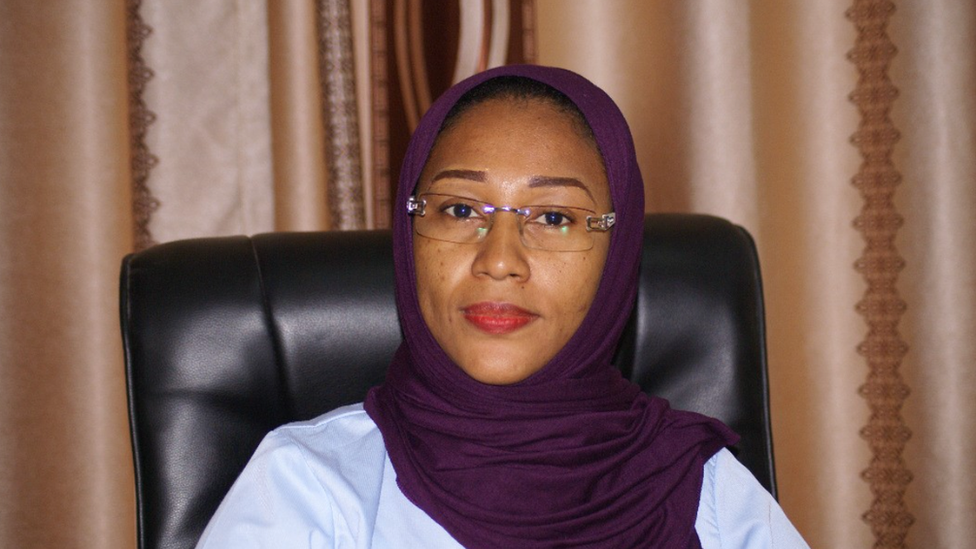
Faiza Abbas said the project had been really helpful
The new approach has been welcomed in Zanzibar with the deputy programme manager of the Malaria Elimination Programme, Faiza Abbas, seeing it as an important step towards eliminating malaria.
"This project has been really helpful in terms of reaching and identifying the breeding sites, but also in terms of expenses," she said.
"We as a programme are determined to use this technology to make sure we are capturing almost all the breeding sites because when you talk about malaria, there is no way you can leave behind the breeding sites...
"It's a really, really important technology."
The project is funded by the Innovative Vector Control Consortium (IVCC), which was established in 2005 with an initial £37m ($50m) grant from the Bill & Melinda Gates Foundation.
'Looking outside the box'
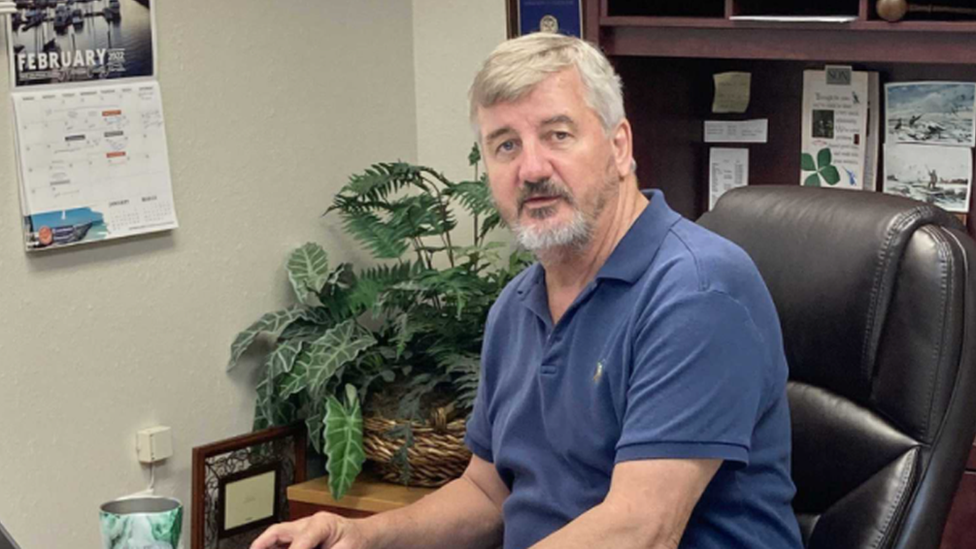
Mark Latham said he hoped the project would open people's eyes to new technologies
According to Mark Latham, a consultant with the IVCC, this project is an example of why it is important to consider different approaches.
"I hope that this does open people's eyes to new technologies." he said.
"You look at Andy, he's a geographer - looking at bringing in expertise from outside of entomologists and epidemiologists that say 'what if we did things this way' and looking outside the box is always an important thing, I think, when developing these types of programmes."
- Published25 April 2021
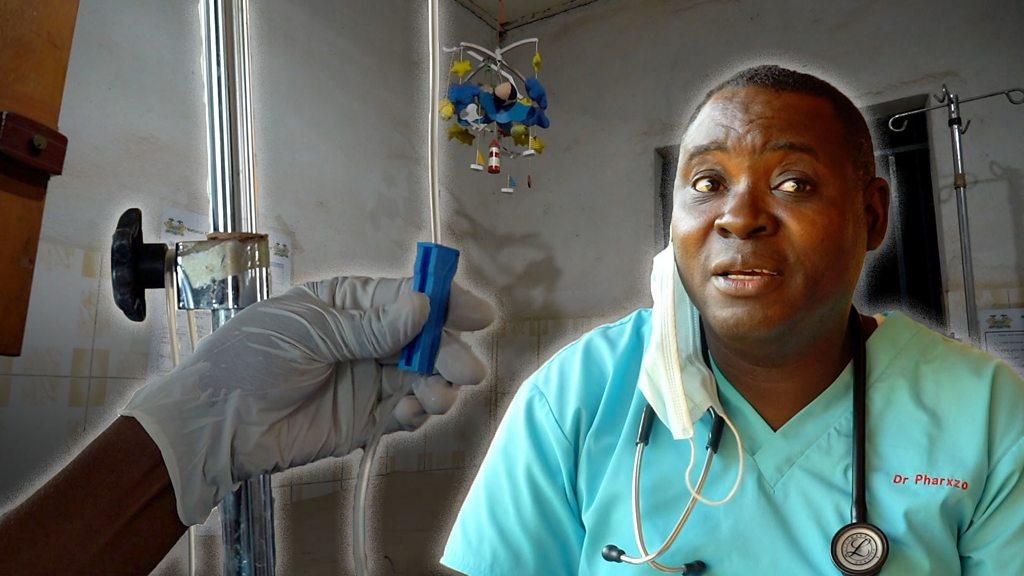
- Published6 October 2021
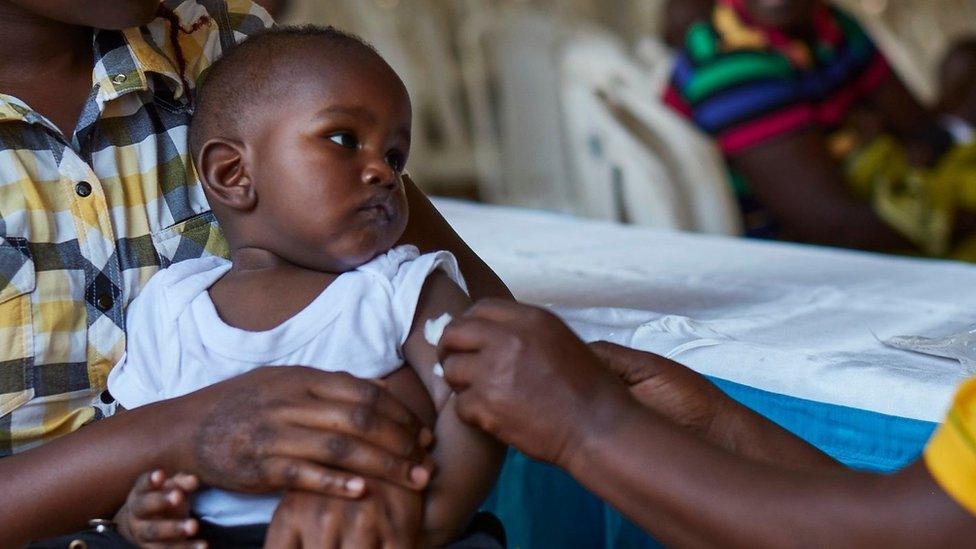
- Published17 October 2021
